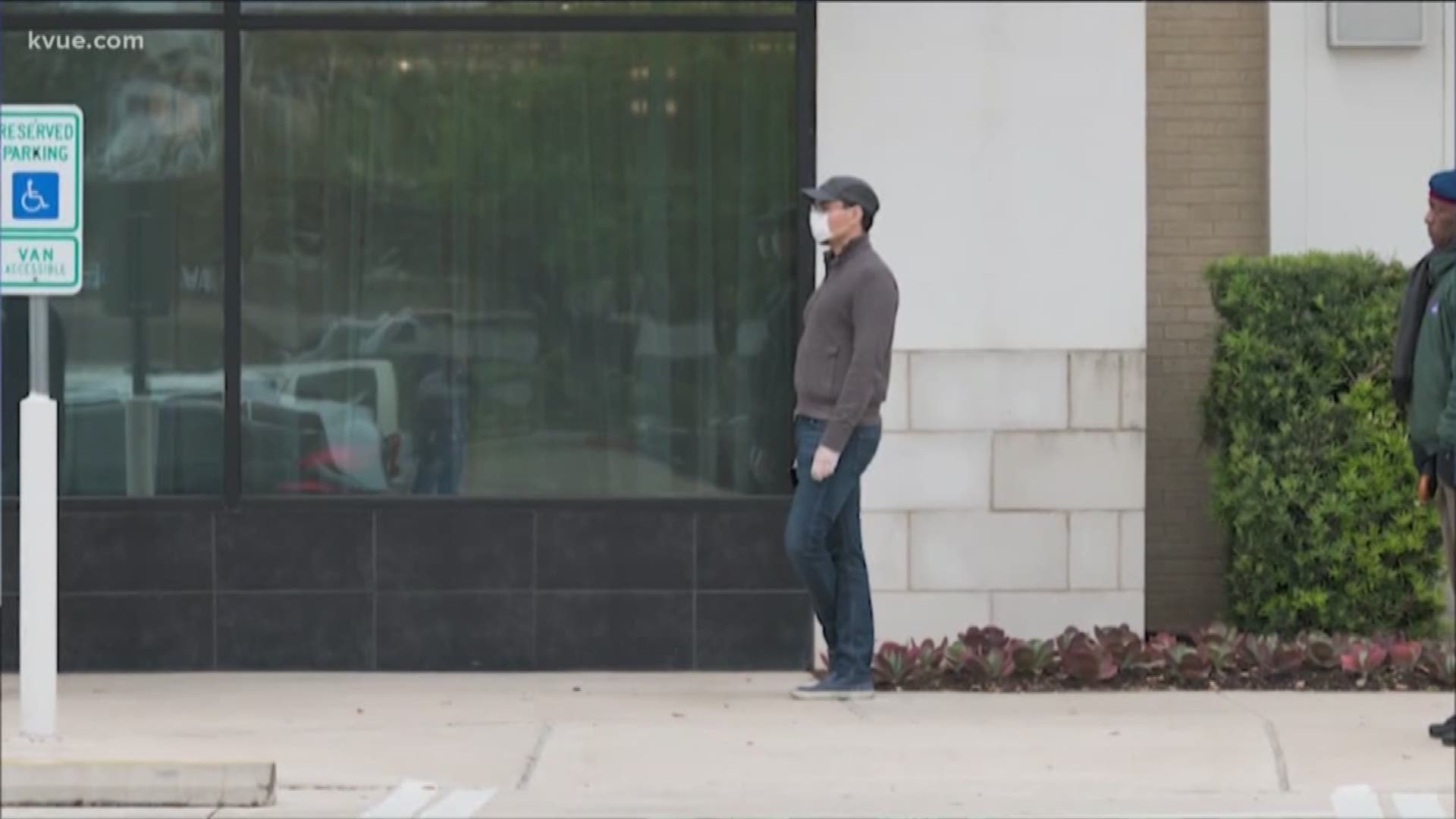AUSTIN, Texas — In response to the coronavirus pandemic, Texas Gov. Greg Abbott announced on March 31 an executive order allowing Texans to engage in only essential services until April 30, to promote social distancing and stop the spread of the coronavirus in Texas. Schools will remain closed until at least May 4, he said.
The order requires Texans to only leave home for essential work or to access essential services, such as going to the grocery store or exercising. The guidelines for essential services are based on the rules from Homeland Security CISA.
The state has listed what is considered essential activities and services on the Texas Emergency Management website. The services include:
- Health care/public health
- Law enforcement, public safety and other first responders
- Food and agriculture
- Energy
- Water and wastewater
- Transportation and logistics
- Public works and infrastructure support services
- Communications and information technology
- Other community- or government-based operations and essential functions
- Critical manufacturing
- Hazardous materials
- Financial services
- Chemical
- Defense industrial base
- Commercial facilities
- Residential/shelter facilities and services
- Hygiene products and services
- Religious services conducted in churches, congregations and houses of worship
- Other services as approved by the Texas Division of Emergency Management
The new order designating religious services as essential overrides city and county orders that may have restricted services, but Abbott's order states religious services should be conducted at home or remotely. If that is not an option, the order allows for services as long as they comply with the CDC guidelines for social distancing. According to the CDC website, gatherings of more than 10 people should be canceled in areas with moderate to substantial spread, such as Austin and Travis County. But in the more than 100 Texas counties where COVID-19 is not present, small gatherings are permitted as long as CDC guidelines are followed.
On Wednesday, Gov. Abbott and Attorney General Ken Paxton released further guidance answering common questions about how the order impacts church services. That can be read here.
Physical activities such as jogging, cycling, hunting or fishing are allowed, so long as necessary precautions are taken to limit contact with people outside the same household.
The order renews and expands previous directives that banned restaurant dining, bars, gyms and massage establishments, adding tattoo studios, piercing studios and cosmetology salons.
The order will supersede any local orders, the governor said. Abbott said the order was not a "stay-at-home" order because Texans are allowed to leave home, although only for the listed essential services and while keeping social distance.
Abbott on Tuesday said 3,266 Texans have tested positive for COVID-19 and 122 Texas counties have at least one case. Less than 10% of tests conducted in Texas have come back with positive results. Most positive cases so far have resulted from before social distancing measures were introduced. There have been 41 deaths in the state, he said.
Around 11% of the cases in Texas have required hospitalization, Abbott said.
RELATED:
On March 29, Gov. Abbott expanded an executive order requiring those flying into Texas from New York, New Jersey, Connecticut and New Orleans to quarantine. Abbott expanded that to include travel by road into Texas from "any location in the state of Louisiana." Anyone also flying into Texas from Miami, Detroit, Chicago, California or Washington state must also quarantine for 14 days.
Many Texas cities and counties, including Travis and Williamson counties, have issued orders for residents to stay home and for non-essential businesses to close amid the pandemic. Abbott previously said he is holding off on a state-wide order, as there are many counties across Texas that have not confirmed coronavirus cases.
PEOPLE ARE ALSO READING:

